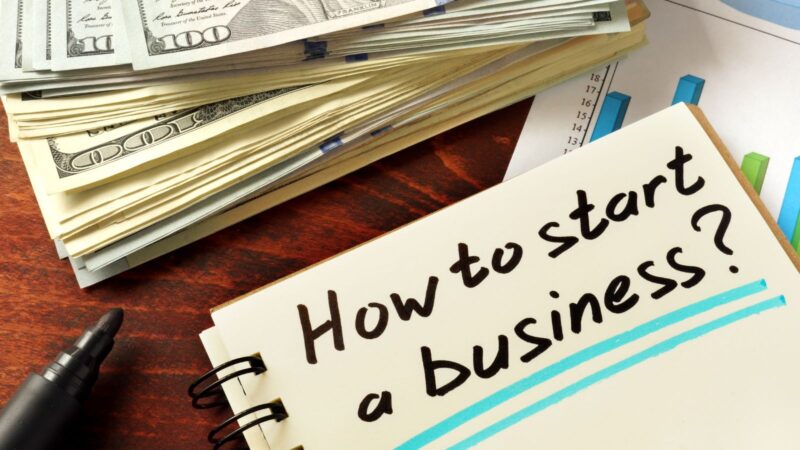Table of Contents
Have you ever found yourself dreaming of starting your own business, only to be held back by the lack of a groundbreaking idea? You’re not alone. Many aspiring entrepreneurs find themselves stuck at the starting line, unsure of which direction to take.
i want to start a business, but have no ideas, it’s easy to feel overwhelmed. But don’t worry, I’m here to guide you through the process of finding that perfect business idea. Let’s explore the various strategies and tools that can help unlock your entrepreneurial potential and set you on the path to success.
I Want to Start a Business, but Have no Ideas
At times, the passion to become an entrepreneur outshines the existence of a specific venture idea. If you’re in this situation, there’s comfort in knowing you’re not alone. Hundreds of aspiring business owners face this exact challenge—driven to establish a business but tangled in the uncertainty of not having a clear-cut idea.

First off, embrace the ambiguity, recognizing it’s a stepping stone towards clarity. Rather than letting it stall your entrepreneurial journey, consider this period a time for exploration, enhancing knowledge and honing skills. Examples could include broadening your understanding of different industries or refining a particular set of technical skills.
On the other side of this void often lies out-of-the-box thinking. Encourage curiosity about several facets of commerce, and you might unravel unique opportunities. Uber, for instance, understood the need for modern taxi service, while Airbnb spotted a gap in the rental marketplace. They didn’t invent new concepts; they reimagined existing ones.

Seek inspiration from every corner—you don’t know where the next groundbreaking idea might come from. Networking events, industry workshops, online forums, reading up on industry trends—all can contribute to idea generation. You can also leverage mind-mapping tools and entrepreneurial ideation platforms like Clarity.fm or Coggle.
Guestimate the parameters of your ideal business. Identify what it incorporates and what it doesn’t. For instance, a desire for flexible working hours or a home-based setup can guide the type of business you’re ideally suited for.
Finally, remember that not having an idea currently isn’t a stop sign—it’s an intersection. Patience and persistence, coupled with continuous learning and observation, often lead the way to unique ideas. Don’t rush the process, let the business idea evolve organically from your experiences and interests.
The Mindset of an Entrepreneur
Transitioning from the initial stages of uncertainty and exploration, let’s delve into my mindset as an entrepreneur. This mental framework guides me through the entrepreneurial journey, even when I lack a concrete business idea.

Adapting quickly forms the cornerstone of my entrepreneurial approach. Despite lacking an initial idea, the ability to swiftly morph my mindset unhindered by a predefined plan equips me to recognize and seize opportunities swiftly and adapt as required.
Curiosity stirs my innovative spirit. I constantly question the status quo, probe into existing models, and explore areas ripe for innovation or disruption. This curiosity-driven mindset ensures that, despite my lack of a concrete business idea, I’m constantly absorbing knowledge that could potentially trigger a revolutionary business concept.
Embracing fear and failure characterizes my entrepreneurial spirit. Fear of the unknown and potential failure often present in the absence of a clear business idea, yet it’s these very elements that urge me to push my boundaries, test my limits, and step out of my comfort zone.

Patience lies at the core of my mindset. Though I may lack an explicit idea for my business yet, I understand the value of waiting for ideas to naturally evolve, rather than forcing them into existence. A patient mindset helps me prioritize organic growth and longevity of a business idea over the immediacy of conception.
Resilience forms the backbone of my mindset as an entrepreneur. The journey to launching a successful venture, especially when starting without a definitive idea, is often fraught with setbacks. I cultivate a resilient outlook that enables me to bounce back from any adversity and keep pushing forward towards my entrepreneurial goals.
In essence, possessing the right entrepreneurial mindset, even when an explicit business idea is elusive, provides a sturdy foundation for my journey. It equips me with patience to wait for the right concept, resilience to endure setbacks, curiosity to explore and innovate, and adaptability to pivot as opportunities present themselves. A failure-embracing approach helps me learn and grow, turning the absence of an immediate business idea from a liability into an asset.
Identifying the Business Opportunities Around You
i want to start a business, but have no ideas, the next challenge lies in pinpointing potential business opportunities. This task, though daunting, is simpler when headed with a well-defined strategy. By observing current market trends, identifying gaps in the market, and leveraging personal strengths, it’s possible to uncover profitable avenues.

Observing Market Trends
Market trends act as vital signposts, leading entrepreneurs to promising business arenas. By staying informed about the latest market dynamics, from technological breakthroughs to emerging consumer demands, I’m able to identify potential opportunities. Regularly reading industry-related news, attending trade shows, keeping abreast of social media trends, and examining the Google Trends’ time-series charts are productive ways I maintain market awareness.
Identifying Market Gaps
Perusing the market frequently reveals gaps needing attention. These range from unserviced customer segments, inadequate service delivery, and absent products or services. By proactively seeking such shortcomings, I expose a wealth of opportunities for business intervention. An example here is the meteoric rise of plant-based diets; this lifestyle shift left a gap in the fast-food industry, leading to the genesis and success of numerous vegan takeaway companies.

Leveraging Personal Strengths
Piggybacking on personal strengths and areas of expertise offers an easier entry point into the business world. By utilizing existing skills, knowledge, and networks, I reduce the learning curve and enhance the chance of success. For instance, someone skilled in IT could leverage their expertise to provide unique software solutions or tech consulting services.
The Power of Brainstorming
Never underestimate the power of brainstorming to generate innovative business ideas. Whether done solely or in group settings, brainstorming fosters creativity and propels the birth of lucrative ideas. For me, brainstorming leads to a torrent of ideas; jotting these down allows revisiting and building upon them later.
The key is not to rush into a business adventure but to be methodical in identifying opportunities. Every entrepreneur needs to navigate a unique path that suits their ambitions and resources. With patience and mindful exploration, a lucrative business venture is certainly within your grasp.
Evaluating Your Potential Business Ideas
Now that you’ve identified some potential business opportunities, it’s crucial to evaluate these concepts thoroughly. Each idea merits careful consideration to determine its feasibility, market viability, and alignment with your strengths and goals.

Investigate the Market Viability
Market research, by and large, plays a vital role in evaluating business ideas. Analyze the chosen industry, track trends, and study competitors. For instance, if your idea pertains to the organic food industry, scrutinize the growth rate, consumer behavior, and competition in this field. Use authoritative sources like Statista or Nielsen to obtain credible industry data.
Evaluate the Feasibility
Feasibility assessment includes financial, operational, and logistical aspects of your concept. Excel spreadsheets become handy tools here, helping me calculate potential expenses, revenues, and profits. It’s equally vital to assess non-financial aspects. Ponder: can you personally oversee the day-to-day operations? Would you need a physical location or could you operate online?
Generating a Business Idea: A Practical Guide
After proficiency in the entrepreneurial mindset and opportunity identification, the next stop in your journey is the generation of a viable business idea. Creating an innovative, market-friendly concept may seem challenging, especially if you’re starting from scratch. However, rest assured, there’s a practical approach to navigate this phase.

Following a structured process can help you shape your thoughts and achieve clarity. First, identify problems worth solving. Direct your attention towards real-life issues in your surroundings, or on a larger scale, in your society. Take a look at Uber, for instance. It emerged as a solution for people striving to find reliable, convenient, affordable transportation.
Second, use brainstorming sessions to delve deeper into the issues you’ve identified. Gather a diverse group of people and view problems from different perspectives. Remember, value emerges from variety. Google’s approach, using its famous “20% time” policy fostered innovation by encouraging employees to spend 20% of their work time on personal projects.









































































































